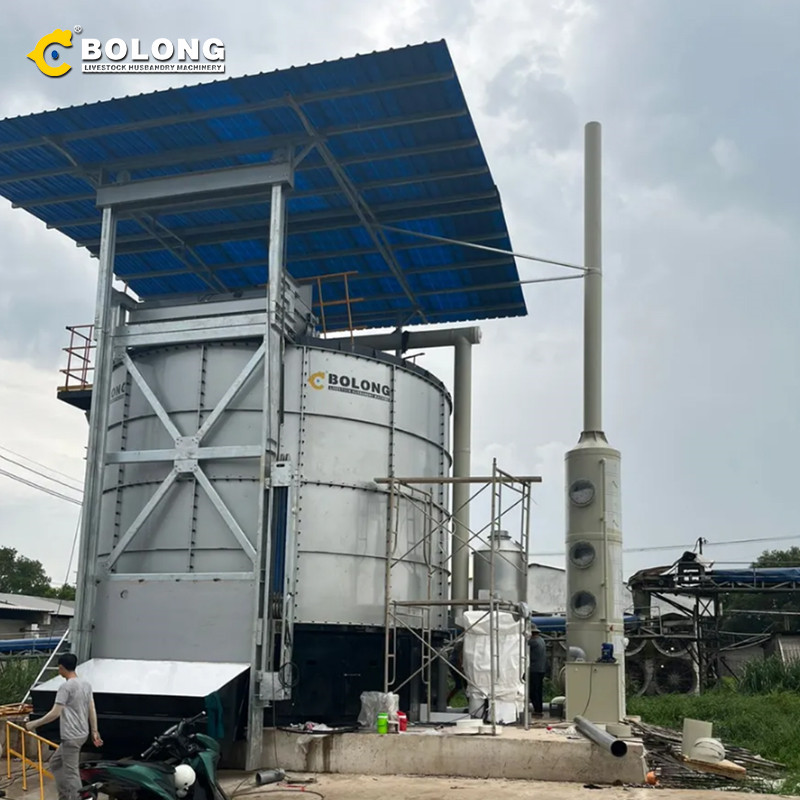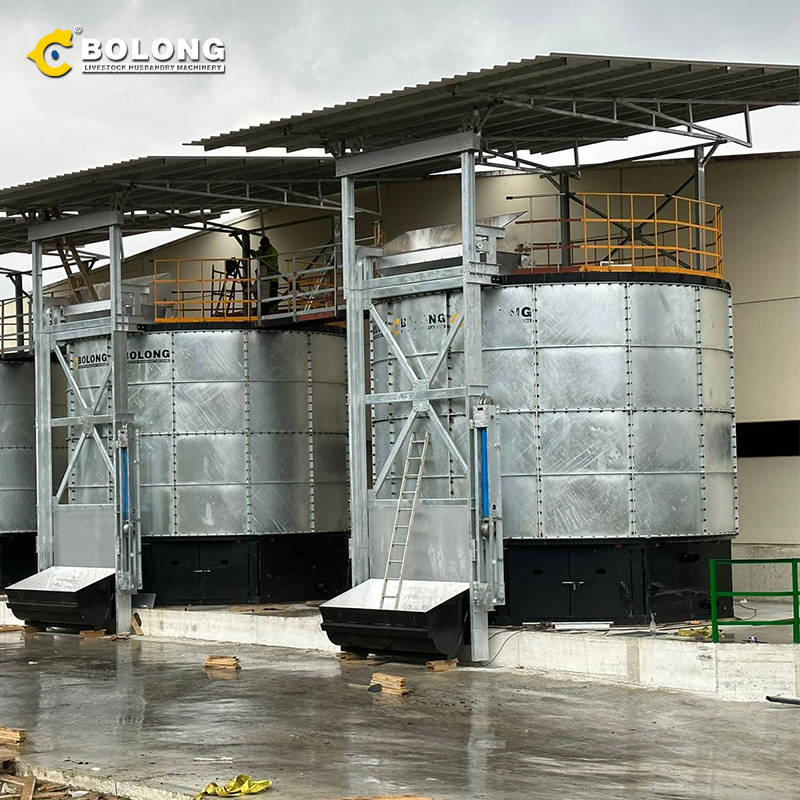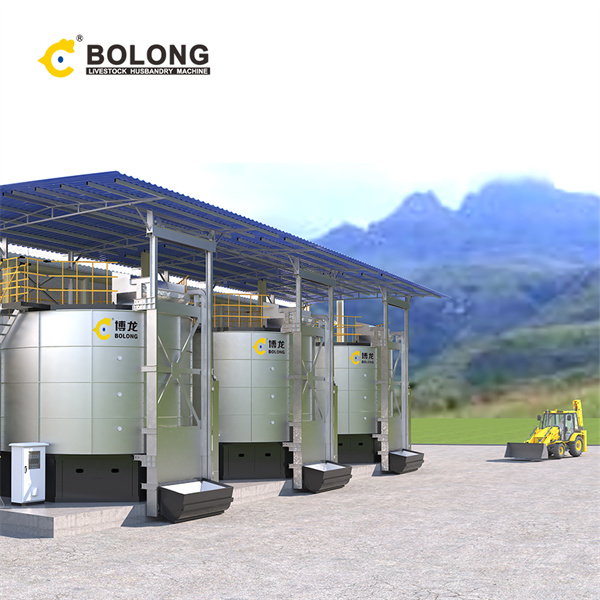With the deepening of the concept of sustainable agricultural development, organic fertilizer production has become an important part of modern agriculture. Organic fertilizer composting machine, as the key equipment for organic fertilizer production, has received widespread attention for its high efficiency, environmental protection and intelligent features. However, for organic fertilizer companies and investors, a central question is: whether organic fertilizer composting machine can bring actual profit? This article will analyse four aspects: market demand, technical characteristics, economic benefits and challenges.
The profitability of organic fertilizer composting machines depends firstly on market demand. In recent years, the rapid development of organic and green agriculture and the increasing consumer demand for pollution-free agricultural products have directly contributed to the expansion of the organic fertilizer market. According to industry data, the global organic fertilizer market is growing at a rate of about 6%-8% per year. As a large agricultural country, China’s organic agricultural area is expanding year by year, and the demand for high-quality organic fertilizer is steadily rising.
At the same time, national policies are also supporting the organic fertilizer industry. For example, in recent years, China has launched the ‘Chemical fertilizer and Pesticide Reduction and Efficiency Action’, the ‘Organic fertilizer Replacement Policy’, and subsidies for the resourceful use of livestock and poultry waste, all of which are encouraging the production and use of organic fertilizers. This policy dividend provides a good external environment for investment in organic fertilizer composting machines.
Therefore, from the demand point of view, the market application space of organic fertilizer composting machine is broad, which can provide good profit opportunities for enterprises.
The core function of the organic fertilizer composting machine is to carry out rapid and efficient fermentation treatment of organic waste (such as livestock and poultry manure, crop residues, food waste, etc.) through automated control, and ultimately generate high-quality organic fertilizer. Compared with traditional composting, organic fertilizer composting machine has the following technical advantages:
Efficient fermentation: traditional composting often takes 2-3 months to ferment, while the composting machine can shorten the cycle to 7-15 days, significantly improving the production efficiency.
Environmentally friendly: The composting machine adopts a closed design, which effectively reduces odour and harmful gas emissions during the fermentation process and meets environmental requirements.
Automation and Intelligence: Through precise control of temperature, humidity and oxygen, the composting machine ensures complete decomposition of organic matter and reduces labour management costs.
Diversified raw material handling: the composting machine can handle a wide range of wastes, broadening the source of raw materials and helping to reduce production costs.
These technical advantages not only improve the efficiency and quality of organic fertilizer production, but also reduce operating costs, creating more profit margins for the enterprise.

To determine whether the organic fertilizer composting machine can be profitable, it is necessary to specifically analyse the cost input and revenue return.
Initial investment: the price of organic fertilizer composting machine is generally from 100,000 yuan to millions of yuan depending on the capacity and function. The initial investment is high, but the equipment has a long life and can be used continuously for 10-15 years.
Operating costs: including power consumption, maintenance costs and labor management costs. Due to the high degree of automation of the composting machine, the manpower requirement is relatively low, and the daily operation cost is somewhat controllable.
Direct revenue: Profit is made through the sale of organic fertilizer. In the Chinese market, for example, the selling price of high-quality organic fertilizer is usually RMB 500-1000 per tonne, while the production cost is about RMB 300-600 per tonne, and the gross profit per tonne can reach RMB 200-400.
Added value: By utilizing the by-products from the composting machine (e.g. biogas or heat produced during the fermentation process) can be used to generate electricity or heat, further reducing costs or generating additional income.
Policy subsidies: Many local governments provide financial support for livestock and poultry manure treatment and organic fertilizer production projects, which can reduce the investment pressure of enterprises to a certain extent.
With reasonable planning and operation, an organic fertilizer composting machine is usually able to recover costs in 2-5 years and achieve sustainable profitability.

Although the potential profit of organic fertilizer composting machines is considerable, there are still some challenges and risks that need to be carefully assessed by enterprises and investors.
Increased market competition: The rapid development of the organic fertilizer industry has attracted many participants, and market competition has gradually intensified, with the problem of product homogenization becoming more prominent. Enterprises need to improve market share through technological innovation and brand building.
Unstable supply of raw materials: the production of organic fertilizer is highly dependent on the source of organic waste, and the uncertainty of raw material prices and supply may affect production costs.
Insufficient sales channel construction: the sales model of the organic fertilizer industry is still dominated by traditional channels, and enterprises need to invest more resources in channel development and market promotion.
Upgrading of environmental protection regulation: With the strict implementation of environmental protection regulations, the operation and emission requirements of fermentation tanks may be further improved, requiring enterprises to increase environmental protection investment.
Despite the challenges, organic fertilizer composting machines still have a broad development prospect. With the deepening of green agriculture policies and the growing market demand for high-quality organic fertilizers, the technology and application modes of composting machines will continue to be optimized. For example, the combination of the Internet of Things and intelligent control systems can achieve more efficient production management, while reducing costs.
In addition, the composting machine can also create more added value in the resourceful use of waste, environmental protection industry chain extension. For investors, as long as they can seize the market opportunity and develop a reasonable operating strategy, the profit return of the composting machine is worth looking forward to.

Organic fertilizer composting machine as an important equipment for modern agriculture and environmental protection industry, its profit margin is driven by market demand, technology development and policy support. On the basis of fully understanding the market trend, optimizing the cost structure and innovating the business model, the composting machine investment can not only achieve economic benefits, but also make a positive contribution to sustainable development. Therefore, it can be concluded that the organic fertilizer composting machine is one of the key equipments that can achieve profitability, but it requires enterprises to balance the opportunities and challenges in practice in order to reap greater economic and social benefits.